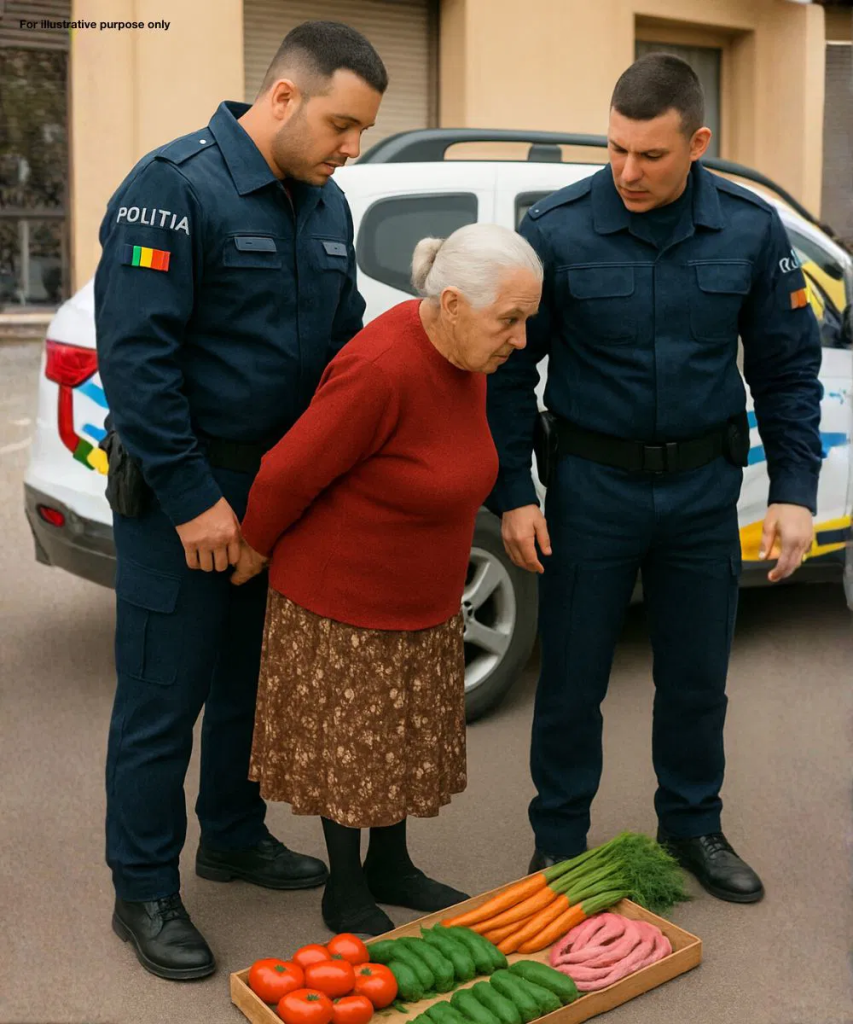Officers responded to a routine call about illegal street vending on a bustling corner of the city. Expecting to break up a nuisance crowd, they arrived to find only a frail elderly woman standing quietly beside a crate of fresh vegetables. The tension eased almost immediately.

She looked harmless — worn blouse, sun-bleached skirt, weathered hands — her carrots, tomatoes, and cucumbers neatly arranged in rows as if she were selling memories rather than food.
“Ma’am, you know you’re not allowed to sell goods here, right?” one officer asked gently.
“I do, officer,” she replied softly, her eyes downcast. “But my son is sick. I just need enough money for his medicine. I grew these myself. I’m not hurting anyone.”
The officers hesitated. Technically, she was breaking the law. But her voice trembled with exhaustion, not defiance. She didn’t seem like a threat — just a mother desperate to help her child.
The senior officer gave a sympathetic nod. “We’ll let it slide this time. But be careful — others might not be as understanding.”
“Thank you,” she said quickly, almost too quickly. There was a flicker of nervousness in her voice.
“Well,” said the younger officer with a warm smile, “since we’re here, let us buy a few vegetables. Help you out a bit.”
“Oh no, no need, son,” she said hastily. “I already have enough customers.”
“Really?” he asked, glancing around. “There’s no one here.”
“They come early,” she said with a nervous laugh. “You just missed them.”
Something in her tone made the younger officer pause. She wasn’t just declining a sale — she seemed worried. Guarded.
Ignoring her protests, he knelt and picked up a tomato. As he turned it over in his hand, his expression changed.
“Cuff her,” he said suddenly, his voice tight.
“What? Why?” his partner asked, startled.
He held up the tomato. The skin had tiny, almost invisible puncture marks — the unmistakable signs of a needle. A closer look revealed the same on the carrots, the cucumbers… all of them.
What seemed like harmless produce was hiding something far more sinister.
Later, the investigation revealed the truth: the woman wasn’t just a poor street vendor. She was the courier in a calculated operation. Her son — disabled and mostly confined to their home — was manufacturing illegal substances. She smuggled them by injecting the drugs into vegetables, using her unthreatening appearance as a perfect cover.
No one ever suspected the trembling hands and kind smile of a grandmother.
Once again, the world was reminded: not everything is as innocent as it seems.